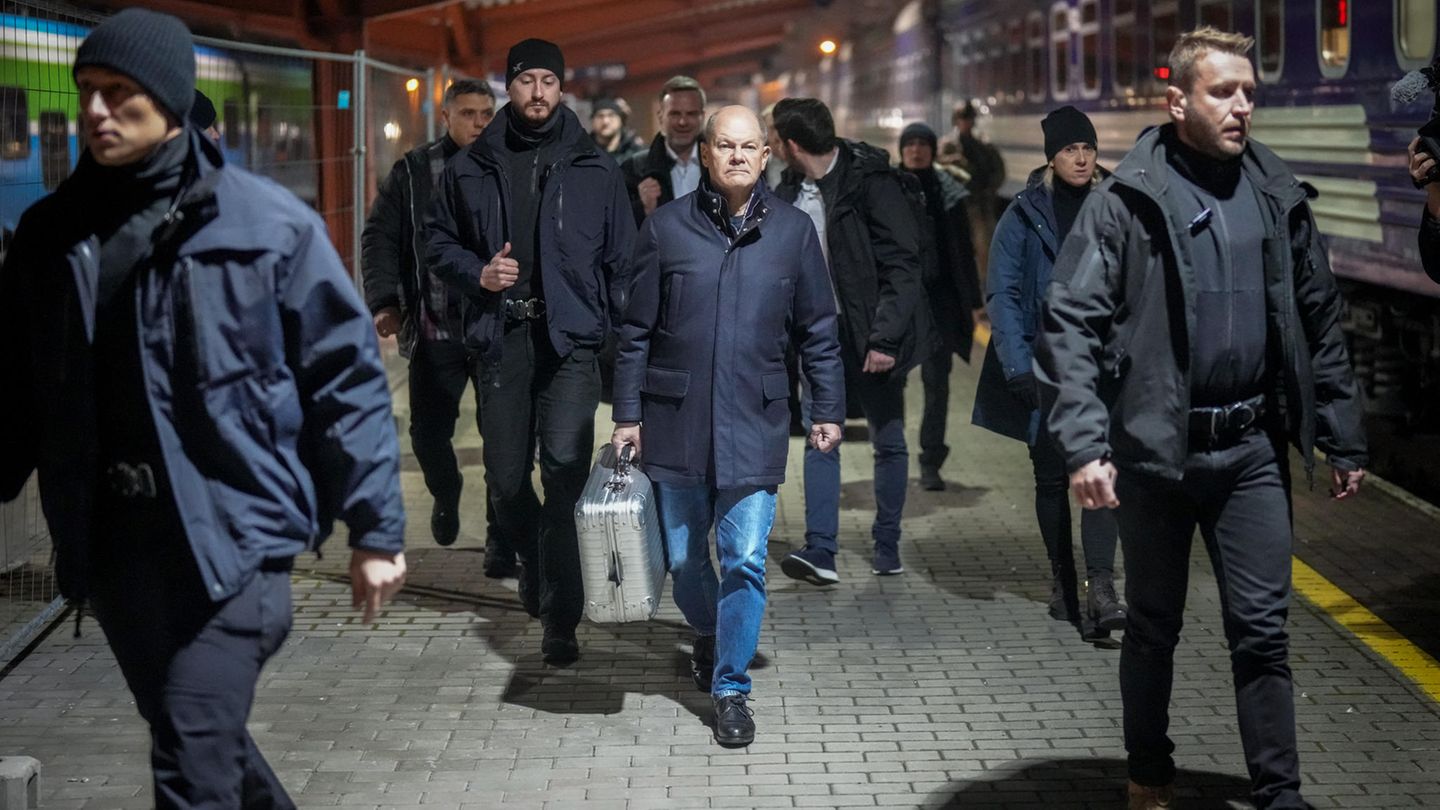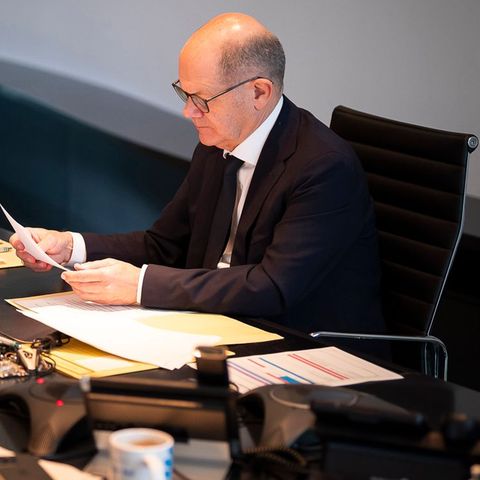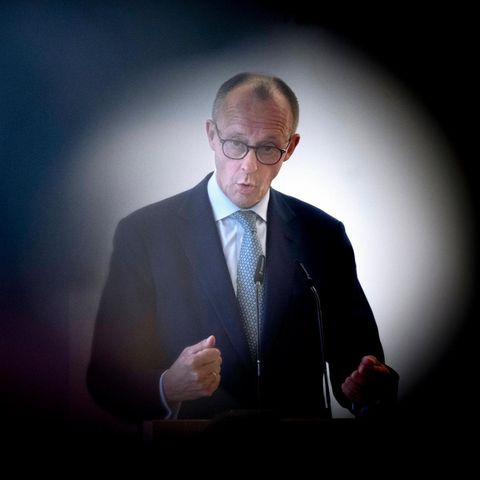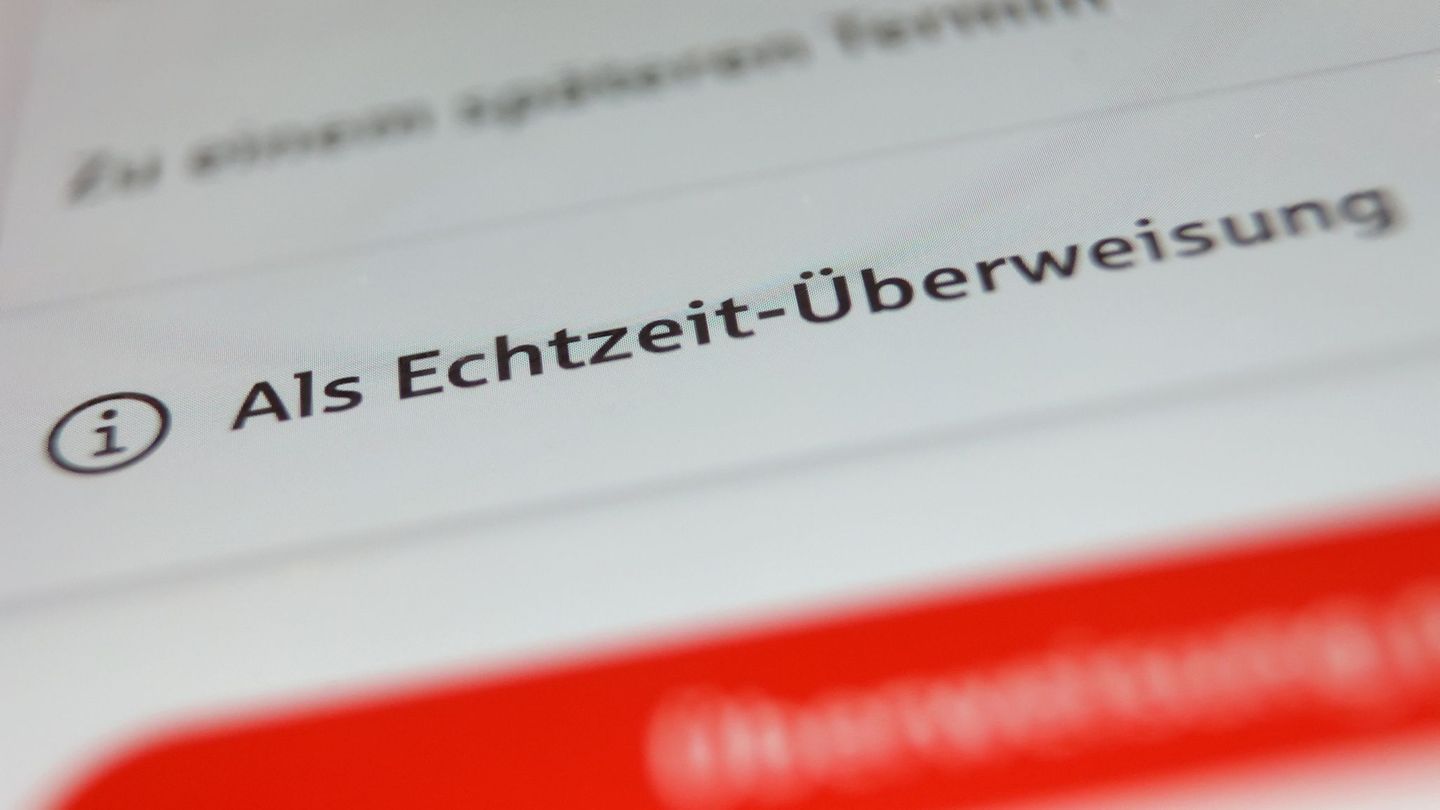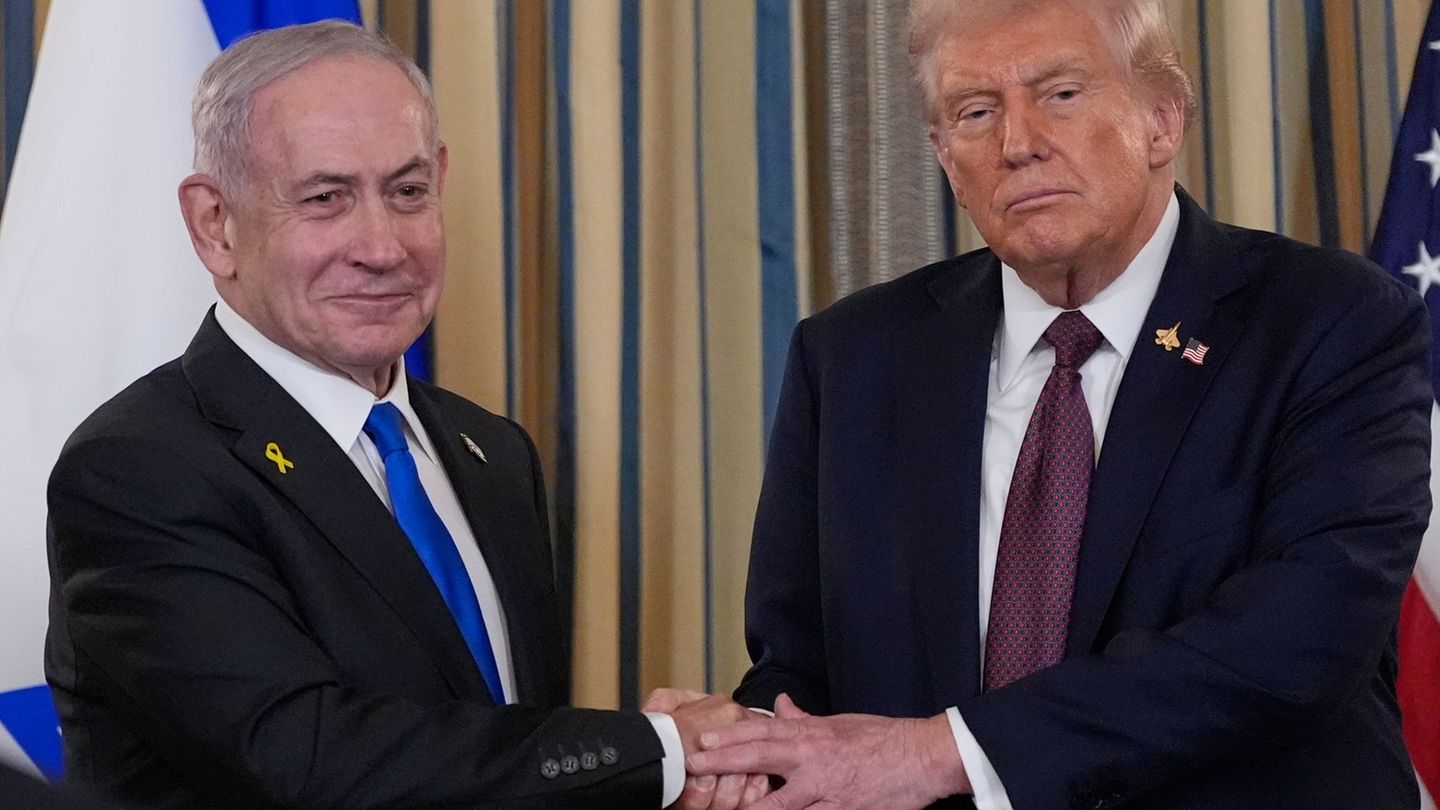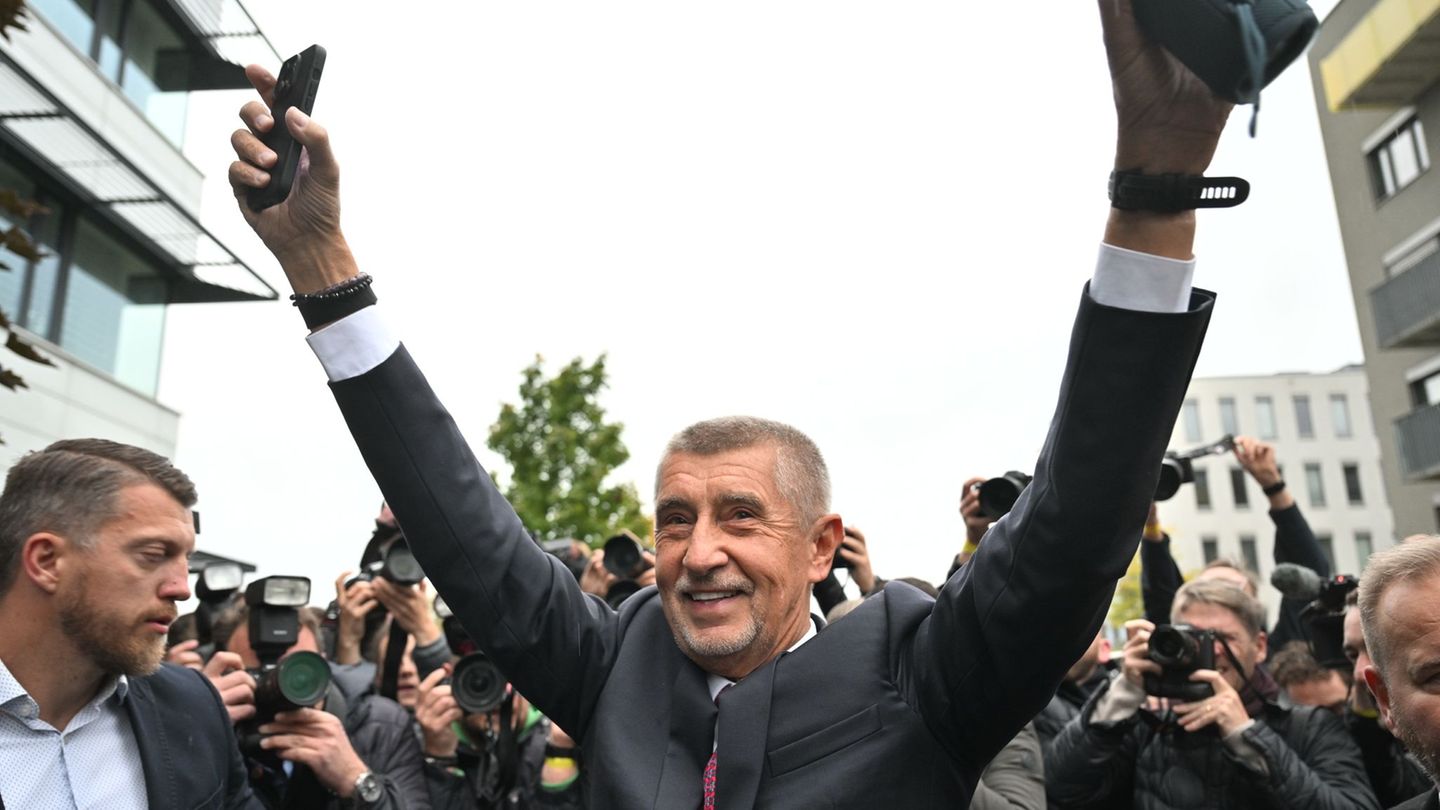On site
Olaf Scholz surprisingly in Kyiv: Is a ceasefire getting closer?
Copy the current link
After the most recent phone call with Vladimir Putin, Olaf Scholz was criticized – including by Volodymyr Zelensky. Now the Chancellor is visiting the President during the war.
Arrival after around nine hours by train: Chancellor Olaf Scholz arrived in Ukraine on Monday for a visit. As always, the trip had not been announced for security reasons. At 8:33 a.m. local time, German Ambassador Martin Jäger and Ukrainian Deputy Foreign Minister Oleksandr Mishchenko received the Chancellor on platform 14 at the train station in Kiev.
Ukraine has been defending itself “heroically against the merciless Russian war of aggression” for more than 1,000 days, Scholz said upon his arrival. He wanted to express his solidarity and make it clear locally “that Germany will remain Ukraine’s strongest supporter in Europe.”
It is the Chancellor’s second visit to Ukraine since the Russian attack more than two and a half years ago. Scholz was in Ukraine for the first time together with French President Emmanuel Macron and then Italian Prime Minister Mario Draghi in June 2022.
Like other cities in Ukraine, the capital has repeatedly been the target of Russian drone attacks in recent nights. Scholz announced further armaments worth 650 million euros, which are to be delivered this year. He initially did not give any details. Ukraine can rely on Germany, said Scholz. “We say what we do. And we do what we say.”
Scholz is to receive a special honor in Kyiv. As the first state guest since the beginning of the war, the Chancellor is greeted with military honors by President Volodymyr Zelensky. This is remarkable because the relationship between Zelensky and Scholz, which has been volatile over the years, recently appeared to be under new strain after the Chancellor spoke on the phone with Russian President Vladimir Putin in mid-November. Zelenskyj had sharply criticized the conversation. Scholz softened Putin’s isolation and thereby opened a “Pandora’s box”. In Berlin, people reacted calmly to the criticism. Zelenskyj was informed in advance. His harsh reaction was attributed to the president’s domestic political constraints.
Scholz is facing criticism from many sides
However, Scholz was also criticized by other allies, including Polish Prime Minister Donald Tusk. He pointed out that Russia had even increased its attacks on Ukraine following the phone call. “No one will stop Putin with phone calls,” Tusk wrote on X. The Russian attacks have shown “that telephone diplomacy cannot replace real support from the entire West for Ukraine.”
The Chancellor’s visit comes during a phase of fundamental uncertainty as to how the West’s Ukraine policy will develop after the change of power in the USA. On the one hand, US President Joe Biden, who is still in office, has allowed Ukraine to use American missiles to attack targets in Russia. Russia responded by launching a new medium-range missile for the first time that can also be equipped with nuclear warheads. On the other hand, Biden’s successor Donald Trump has announced that he wants to end the Ukraine conflict quickly. To this end, he wants to appoint former General Keith Kellogg as a special envoy.
Scholz: “Also look for ways to negotiate”
The Chancellor reiterated his position on Ukraine at the weekend. “Under my leadership, Germany is by far the largest supporter of Ukraine in Europe,” said Scholz at the SPD election campaign launch in Berlin. It will stay that way – “as long as necessary”. However, Scholz added: “As hard as it seems to be, we also have to look for ways that lead to real negotiations.” This is also Zelensky’s attitude.
In fact, a few days before Scholz’s arrival in Kiev, Zelensky made a new proposal under which conditions Ukraine could be ready for a ceasefire and possible negotiations. On the US broadcaster Sky News, he no longer called for NATO membership, but only for NATO to protect the parts of the country controlled by the Ukrainian government. The areas occupied by Russia will then be negotiated. In principle, however, Ukraine does not want to buy peace by ceding Ukrainian territory.
For Olaf Scholz, Ukraine is also an election campaign issue
For Scholz, the topic of Ukraine also plays a major role in the upcoming federal election campaign. The Chancellor wants to present himself as a prudent statesman and thus differentiate himself from the Union’s candidate for Chancellor Friedrich Merz. In his speech in Berlin, Scholz rejected allegations that he was exploiting the war for domestic political purposes. “No, it’s not like that,” said Scholz. The war in Europe is an issue – “whether the Chancellor talks about it or not.” Citizens have “a right to know who is standing where,” said Scholz.
The Chancellor warned that one should not close one’s eyes to “the fact that this war could spread to all of Europe and indeed to the entire world.” Scholz also raised the possibility of a Russian nuclear attack. An attitude of “It will all work out somehow” is not suitable when it comes to Germany’s security.
Source: Stern
I have been working in the news industry for over 6 years, first as a reporter and now as an editor. I have covered politics extensively, and my work has appeared in major newspapers and online news outlets around the world. In addition to my writing, I also contribute regularly to 24 Hours World.

